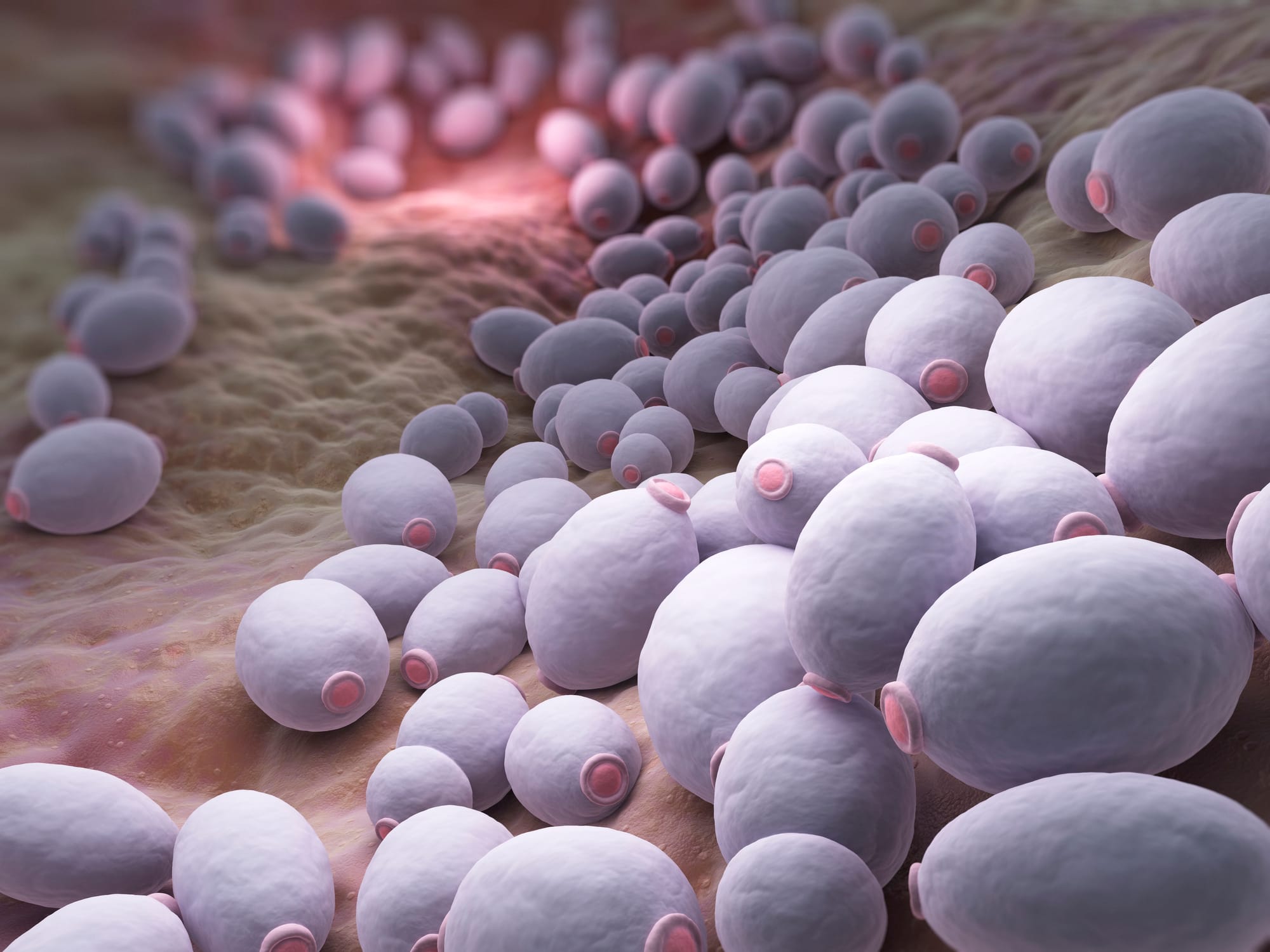
What is candida?
Candida is a common fungus that lives on and in every one of us. When in balance it causes no problems, but if its growth is unchecked, it can become a chronic infection that requires repeated anti-fungal treatment. In very serious cases candida may become a blood-borne infection requiring immediate medical attention. Symptoms vary and may seem unrelated to the condition: sugar cravings, bloating and flatulence, mood changes, irritability, brain fog, anxiety and depression. Candida often presents as oral, vaginal or male genital thrush, but the skin can also be infected (athlete’s foot), as can the intestines.
Why does it get out of control?
Anything that compromises our immune system can precipitate candida overgrowth. Antibiotic use is linked with candida as in the absence of beneficial bacteria, the unhealthy flora can get out of control. A Western diet high in refined carbohydrates, alcohol, sweets and caffeine will raise blood sugar and sugar is the number one fuel for candida. Sensitivities to foods such as milk, gluten and additives can also increase the load on the immune system and allow candida the chance to thrive. High stress can reduce immunity and candida can increase anxiety, creating a vicious cycle.
What can we do if we have it?
Improving your diet, primarily by choosing to eat more vegetables, (preferably organic), and taking regular exercise, is not only a great mood booster, it will also support your immune system, too.
Avoid refined carbohydrates: white flour products, sugary foods such as sweets and cake, and anything that has a high glycaemic load. High GL foods are those which quickly spike your blood sugar levels. You’ll find a GL list on line.
Avoid alcohol and anything that you are allergic or sensitive to. A naturopathic practitioner can help you to discover your food triggers.
Find ways to help you cope with stress, such as a course of Acupuncture.
Foods to eat
- The oil, milk and water of the coconut contains caprylic acid which fights candida. Try coconut in place of dairy yoghurt, coconut cream in dishes, oil for cooking, etc.
- Garlic – eat a couple of cloves daily, raw if possible but never on an empty stomach! Add a crushed clove at the end of cooking to retain the properties; add to olive oil and lemon juice for a spicy dressing; roast an entire bulb and squeeze out the softened cloves to spread on wholegrain toast.
- Probiotic and prebiotic foods – sauerkraut, kimchi, apple cider vinegar, onions and leeks can help repopulate the bowel with friendly organisms.
- Spices – cloves, oregano, rosemary, nutmeg, turmeric and cayenne are anti-fungal and fantastic antioxidants and anti-inflammatories, which can help up mop up candida-induced damage and prime the immune system. Try them in herbal teas, and add loads of spices to your cooking.
- Walnuts and Brazil nuts – they’re great mood boosters and high in compounds to support your immune system.
Other help
A naturopathic practitioner can advise on specific dietary and lifestyle changes. They may also consider appropriate supplementation to increase your intake of probiotics, and to boost your mucous membrane health and your immunity. Adaptogenic herbs such as Rhodiola or Withania can help you deal with feelings of stress. A herbalist could create a specialist blend of these, plus herbs which have anti-fungal and immune boosting effects, such as Barberry, Oregon Grape, Garlic, Black Walnut and Olive Leaf, along with others which can address individual factors leading to your candida overgrowth.

